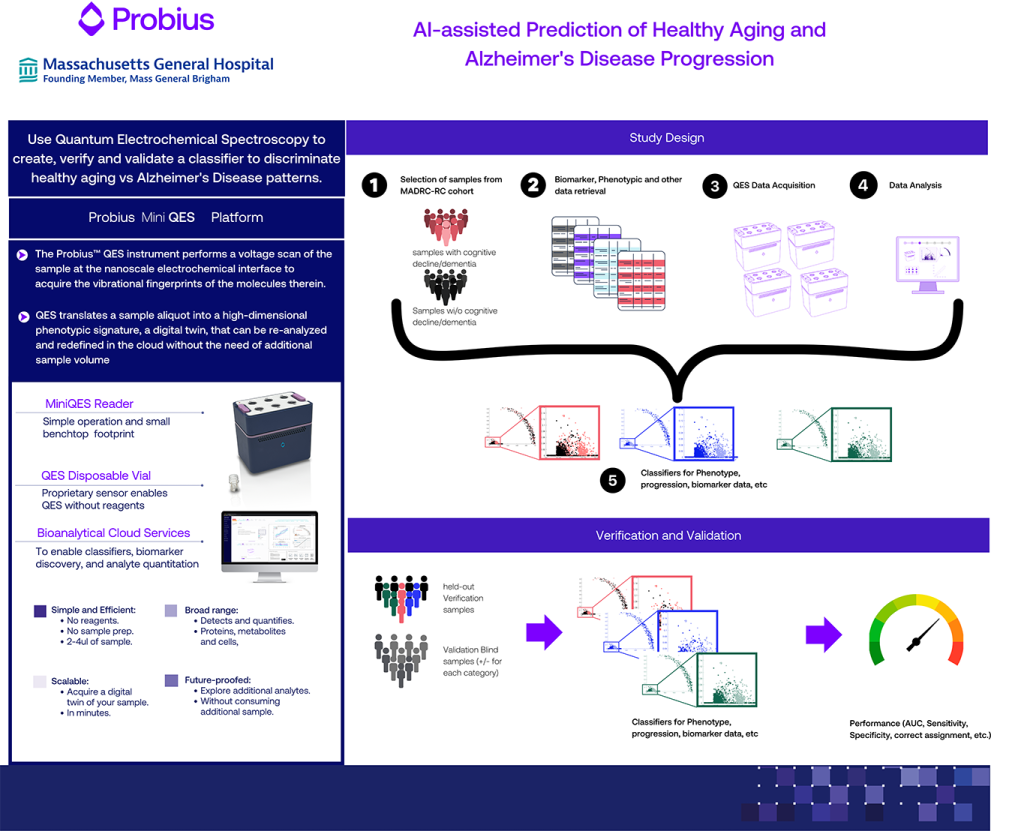Investigators:
Chaitanya Gupta, ProbiusDx Inc.
Steven Arnold, Massachusetts General Hospital
MassAITC Cohort: Year 4 (AD/ADRD)

Initial Proposal Abstract: Aging is the primary risk factor for Alzheimer’s disease (AD), yet the underlying biological mechanisms driving neurodegeneration and cognitive decline remain poorly understood. Early detection and intervention are crucial for slowing AD progression, but current diagnostic methods, which often rely on subjective clinical assessments and imaging techniques, frequently lead to misdiagnosis or delayed diagnosis. Recent advancements in blood-based diagnostics, such as tests targeting specific analytes like p-tau217, show promise but are limited by binary cutoffs, leaving many patients in an intermediate or undefined risk category.
In this collaborative research effort, we propose to evaluate the potential of Quantum Electrochemical Spectroscopy (QES) as a novel bioanalytical technique for detecting and monitoring AD progression and differentiating it from healthy aging patterns. Leveraging a well-characterized longitudinal cohort of AD and healthy plasma samples (MADRC-RC), we will employ QES to generate a comprehensive dataset. By integrating this dataset with available cognitive, phenotypic, and molecular data, we aim to discover new signatures indicative of disease progression. The MiniQES instrument will transduce the vibrational frequencies of multiple species in the sample into discrete electronic signatures, which will be post-processed to develop robust and reliable predictors of AD progression. This approach is expected to facilitate timely interventions and improve patient outcomes.
